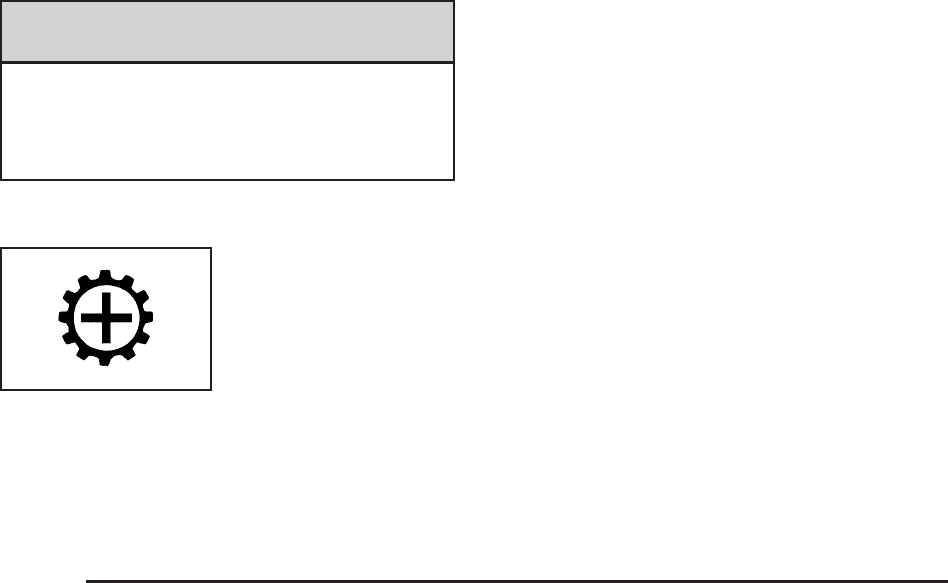
Shift Speeds
{ CAUTION:
If you skip a gear when you downshift, you could
lose control of the vehicle. You could injure
yourself or others. Do not shift down more than
one gear at a time when you downshift.
Up-Shift Light
If the vehicle has a manual
transmission, there may be
an up-shift light. This light
will show you when to shift
to the next higher gear for
the best fuel economy.
When this light comes on, you can shift to the next
higher gear if weather, road, and traffic conditions let
you. For the best fuel economy, accelerate slowly
and shift when the light comes on.
While accelerating, it is normal for the light to go on and
off if you quickly change the position of the accelerator.
Ignore the light when downshifting.
No-Lift Upshift (SS Models)
If the vehicle has the 2.0L turbo engine and manual
transmission, it has the capability of No-Lift Upshifts.
This feature maximizes vehicle acceleration by allowing
you to shift the transmission to a higher gear without
taking your foot off the accelerator. No-Lift Upshifting is
enabled in all Electronic Stability Control modes. See
Electronic Stability Control (ESC) on page 4-7 for more
information. Use this feature only when the engine has
reached normal operating temperature. Correct shifting
allows the engine to maintain boost pressure during
shifts, while also keeping the engine from over-revving.
To utilize this feature:
1. Accelerate the vehicle by fully depressing the
accelerator pedal.
2. Just prior to reaching the maximum engine speed,
quickly complete the upshift utilizing the clutch while
keeping the accelerator pedal fully applied. A quicker
shift maneuver gives the best performance. If the
engine is operated at the maximum engine speed for
greater than one second, the engine exits the No-Lift
Upshift mode and resumes normal engine overspeed
protection.
2-32


















